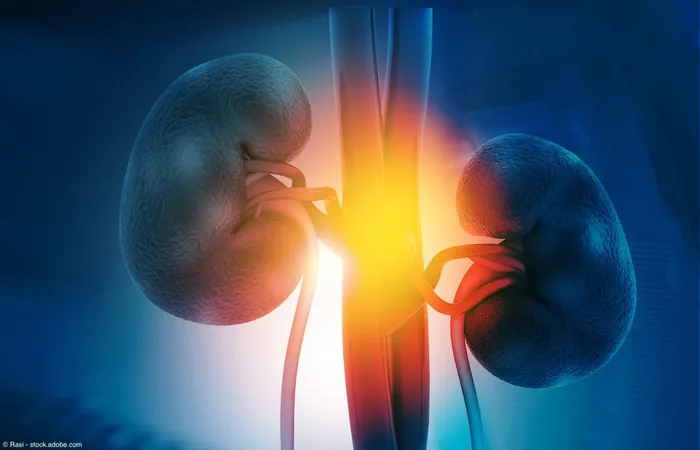
Breakthrough in Kidney Cancer Treatment: Lenvatinib and Pembrolizumab Show Incredible Potential in Non-Metastatic Clear Cell Renal Cell Carcinoma
2025-04-03
Author: Wei Ling
A Closer Look at the Study
The study, registered as NCT04393350, aimed to combine pembrolizumab—an FDA-approved PD-1 inhibitor—and lenvatinib, a multi-kinase inhibitor. This intriguing pairing has already demonstrated efficacy in treating metastatic ccRCC in previous trials, particularly the CLEAR trial. Researchers set out to see whether this potent combination could also prove beneficial in the perioperative setting, potentially reducing tumor burden and enhancing long-term outcomes for patients facing surgery.
Encouraging Results
The results are encouraging. The trial involved 17 evaluable patients, of which 18% experienced partial responses to the treatment. The median tumor reduction was notable at around 22%, with some patients seeing reductions as high as 37%. Remarkably, none of the participants experienced disease progression during the neoadjuvant phase, allowing 16 out of 17 patients to undergo surgery as scheduled.
While the treatment bore some common adverse events—such as fatigue and hypertension—there were no significant complications during or post-surgery related to the drugs. One patient did experience a severe immune-related adverse event, but they were still able to proceed with surgery after managing the complications.
Next Steps in Research
As the landscape of kidney cancer treatment evolves, Bilen envisions further studies to deepen the understanding of this treatment strategy. The next phases will include long-term follow-ups to monitor disease-free survival and overall survival rates. Researchers plan to conduct correlative studies to analyze the tumor microenvironment, identify biomarkers for response and resistance, and assess the quality of life and muscle mass in patients treated with this combination.
Despite the promise shown in this single-arm trial, Bilen emphasizes the necessity of larger, definitive clinical trials to confirm these findings and validate the perioperative approach in treating ccRCC.
Implications for Urologists
For urologists, the significant takeaway from this study is the demonstrated activity of the lenvatinib and pembrolizumab combination in a high-risk patient population. There’s potential for tumor reduction without delaying crucial surgical interventions, along with manageable safety profiles. This innovative approach could influence surgical outcomes and improve long-term survival rates.
With ccRCC patients facing over a 50% risk of recurrence, this research holds immense promise. Collaborative efforts between urologists and medical oncology will be vital to further explore this treatment and potentially secure a breakthrough in combating this aggressive cancer type.
As we await more comprehensive data, the medical community remains hopeful that this combination therapy may pave the way for a new era in kidney cancer treatment, bringing renewed hope to patients and families affected by this disease.




 Brasil (PT)
Brasil (PT)
 Canada (EN)
Canada (EN)
 Chile (ES)
Chile (ES)
 Česko (CS)
Česko (CS)
 대한민국 (KO)
대한민국 (KO)
 España (ES)
España (ES)
 France (FR)
France (FR)
 Hong Kong (EN)
Hong Kong (EN)
 Italia (IT)
Italia (IT)
 日本 (JA)
日本 (JA)
 Magyarország (HU)
Magyarország (HU)
 Norge (NO)
Norge (NO)
 Polska (PL)
Polska (PL)
 Schweiz (DE)
Schweiz (DE)
 Singapore (EN)
Singapore (EN)
 Sverige (SV)
Sverige (SV)
 Suomi (FI)
Suomi (FI)
 Türkiye (TR)
Türkiye (TR)
 الإمارات العربية المتحدة (AR)
الإمارات العربية المتحدة (AR)